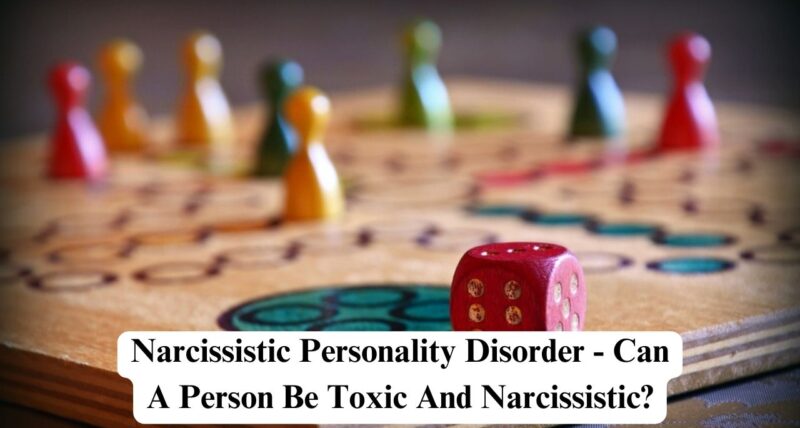Can A Person Be Toxic And Narcissistic? How do you know you are dealing with someone suffering from Narcissistic Personality Disorder? (NDP) Are toxic people, for the most part, NarcissistsIs?
Well, as per the common definition of “Narcissism” or the explained features of a person with “Narcissistic traits,” – It is someone seeking too much social admiration. These personalities also have an unreasonably high sense of their self. Also, they are the ones who feel the need to be treated well, especially with granted privileges. And at times, they can indulge in sabotaging behaviors, causing people around them to suffer.
On the other hand, we have toxic people creating much havoc in the lives of others. These people are also great manipulators who usually never like apologizing for their mistakes and are quite skeptical of someone trying to rectify them.
Now, time and again, narcissism and a person with toxic personality traits have come to showcase similar behaviors when dealing with social whereabouts. This brings us to the point where diving deep into the situation is essential.
History of Narcissism
The term Narcissism dates back to Ovid’s Metamorphoses in the 1st-century story of Narcissus and Echo.
In the story, Narcissus is a young man with handsome features. He disdains the advances of multiple potential lovers, including that of Echo, a Nymph. Gods punished Narcissus after he rejected Echo and made him fall in love with his reflection in a pool. Once Narcissus finds that the one he loves can never love him back, he gets disheartened and ultimately dies.
Later in 1898, psychologist Havelock Ellis did use the term “Narcissus – like” for the first time to define abnormally self-focused sexuality.
Type Of Narcissism
Moving on to find “Can A Person Be Toxic And Narcissistic?” let’s look into the various types of Narcissism.
Sexual Narcissism
These people are seen prioritizing their sexual satisfaction and needs. Lack of empathy and expectation of frequent praise for their sexual performance defines them. They are sexually romantic and passionate initially, but things change with time, getting immensely transactional and aggressive.
Overt Narcissism
These people have inflated egos and believe they are superior to others and deserve the best of everything. They will never acknowledge any fault or shortcomings in themselves.
Covert Narcissism
These types are shy, always worried, with self-deprecating behavioral characteristics. Emotional fragility and difficulty dealing with criticism are other traits of the same.

Grandiose Narcissism
Narcissist starts exaggerating their accomplishments, trying to develop a high sense of self and present themselves as superior. They are more extroverted and exploitative than others.
Hypervigilant Narcissism
They have a huge fear of rejection and are always looking out for hints of possible disrespect. Socialization is highly painful for them, as the fear of abandonment and rejection continuously crowds over the mind.
Exhibitionist Narcissism
They like to be the center of attention and be termed the party’s life. Also, these people are always looking to be a part of the company of many fabulous people as they think of themselves.
Vindictive Narcissism
Vindictive narcissists are hypersensitive to disagreements, rejection, perceived criticism, and boundaries. Their whereabouts include sabotaging someone’s life or career, talking behind the back, and blackmailing.
Malignant Narcissism
It is a term used to describe a person with Antisocial Personality Disorder and Narcissistic Personality Disorder. These people find immense pleasure in exploiting others and mistreating those.
Antagonistic Narcissism
These people are known for their specific personality traits like lack of empathy, arrogance, and disregard for others. Also, they are extra defensive and always are seen to respond with anger to any imagined or real fights.

Somatic Narcissism
These people are self-obsessed with their physical appearance and use this perception of their bodies to criticize others. They also try to derive personal value and superiority from sex.
Spiritual Narcissism
These people derive their worth from their faith and the ability to control others. A common trait of these personality types is gaslighting, fear-mongering, and shaming others through spirituality.
Cerebral Narcissism
Also known as intellectual narcissism, these people create a sense of being well-educated and knowledgeable, having learned it all. These people are generally smart and try to portray themselves as more educated than they are.
Healthy Narcissism
This person with a deep sense of self-worth can prioritize and work on self-growth and improvement. The term might sound like an oxymoron, but for a long time, healthy narcissism has been the only type that focuses on doing some good to the environment.
Communal Narcissism
These people find themselves and their values to be the most superior in a community. Often thinking of themselves as the best socializers, listeners, and helpers. Which, in reality, they are not.
Are Toxicity And Narcissism The Same?
To conclude, “Can a person be toxic and narcissistic?” Or “Are toxicity and narcissism the same?” it is important to understand the traits of a person otherwise termed toxic.
The “Diagnostic and Statistical Manual of Mental Disorders (DSM-5-TR), 5th edition,” a revision of the original DSM-5 released in 2013 – does not consider toxicity a mental illness. Rather, it is something that people with other personality disorders usually showcase.
Continuing with the question, “Can a person be toxic and narcissistic?” Or “Are toxicity and narcissism the same?” So a person with toxic traits usually is seen to avoid discussions, is scared of accountability, and often refuses to apologize for their mistakes. These people get extra satisfaction by manipulating others and do not love to respect boundaries.
Going by the type of narcissist, you might have come across similar traits and functionalities in them. That way, one can conclude that toxicity is an end product of the various personality traits of a narcissistic. And yes! A person can be toxic and narcissistic.
Is It Possible For Narcissism To Pass Down Genetically?
As per many clinical Psychologists and counselors – narcissism is the least studied concept regarding personality disorders. However, multiple pieces of research evidence still claim to conclude that narcissism might run in one’s genes and the family.

A study in 2012 shows that Narcissistic Personality Disorder comes with heredity among Cluster B personality disorders. The category specifically defines the ones with borderline or antisocial personality disorder. These people are characterized by erratic thinking and behavior.
Also, many suggest that growing up in a house with a person suffering from NPD (Narcissistic Personality Disorder) does not guarantee that the child will develop to be the same. Still, it will make them vulnerable to all the legitimate conditions required for the same disorder to propagate.
At What Age Does NPD (Narcissistic Personality Disorder) Develops?
Probably narcissistic traits in a person are visible from the teens or early adulthood when they become aware of the “self.” Often too much emotional abuse in the form of criticism from parents and other loved ones makes a person inhibit narcissistic traits. In a common scenario, these people might appear strong from the outside, but deep down, they are lonely, lack actual meaning in life, and suffer alienation.
It is still debatable whether a person suffering from Narcissistic Personality Disorder gets such traits from the family or has developed them from their environment. Also, people are seen questioning toxicity and narcissism being the same. Whatever the answers are, it will take time to unravel with more psychological research work conducted.



